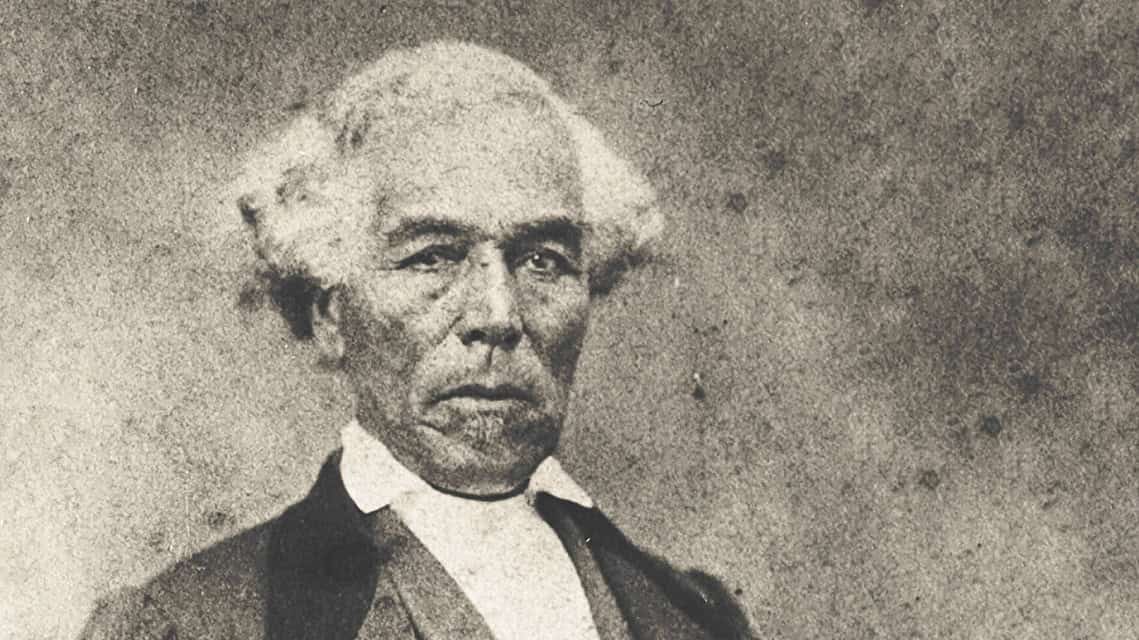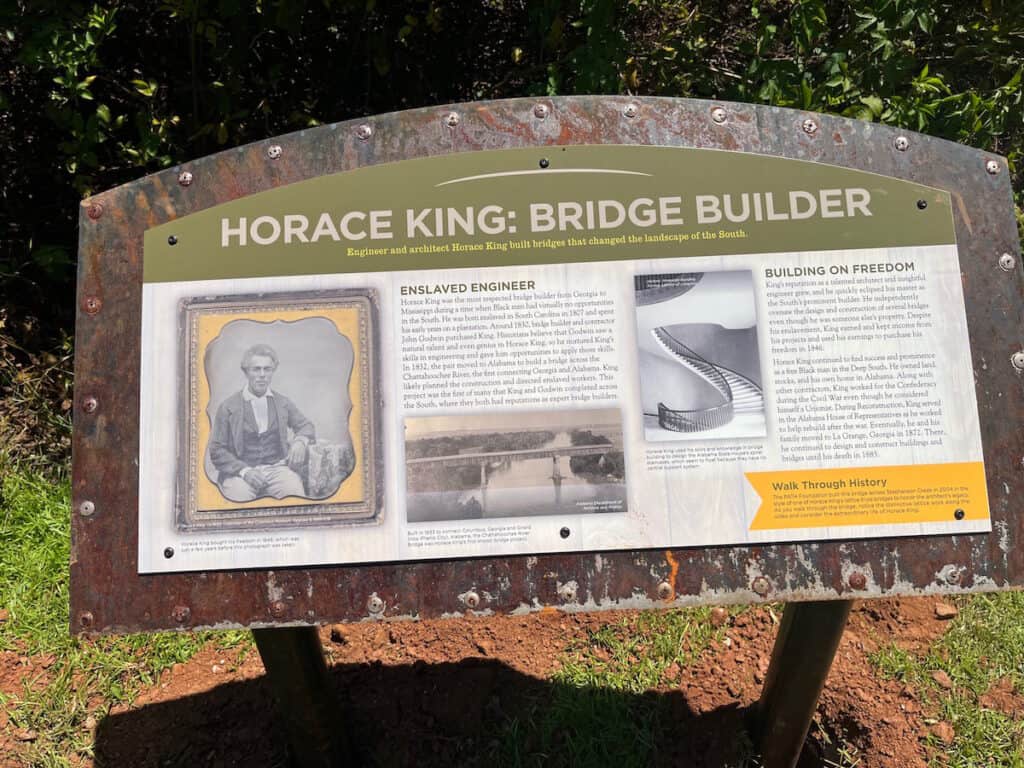The Curious Life Of Horace King

From bondage to the “Bridge Builder King,” Horace King’s life as a Black man in the Deep South defied all odds and became the stuff of legends.
Born into enslavement on June 8, 1807, in what is now Chesterfield County, South Carolina, Horace King would go on to defy several odds and become the exception to the rule for what was possible for Black men of the Antebellum, Reconstruction, and early Gilded Age periods. Following the death of his enslaver, he was sold to bridge builder and contractor John Goodwin, who noticed the architectural skill set that King possessed and decided to utilize that skill in combination with his own to create new opportunities for the pair.
The Bridge Builder King

One of King’s spiral staircases inside the Alabama Capitol.
King’s abilities proved fruitful in 1832 when Goodwin received a contract to build a bridge that would cross the Chattahoochee River and connect Columbus, Georgia to what is now Alabama. Several historical sources point towards the possibility that King would have worked independently as was common for many enslaved workers who possessed specialized skills and trades.
This quasi-independence would have assisted King as his reputation grew and could be directly related to his ability to purchase his own freedom in 1846. His steadily growing popularity combined with his newfound freedom gained him the nickname of the “Bridge Builder King.” This opened doors for him to take on large scale clients and projects that would stand the test of time, such as his work on rebuilding the Alabama state capitol after a disastrous fire in 1849. His double cantilevered spiral staircases still stand inside the capitol building as a stunning example of how King married incredible craftsmanship with breathtaking beauty in a style that seems to almost defy gravity.
Freedman During The Civil War
After gaining his freedom, King was able to further elevate his place in society by owning land, stock, and a home for his wife and their five children in throughout several parts of Georgia and Alabama. As was the predominate social standard of the time for Southern men of prominence, King also attempted to become an enslaver when he purchased a young boy named John Stella Martin, whom he later sold after attempting to punish the child and not being pleased with the aftermath. During the Civil War, the politics of being a Southern, free, wealthy, skilled, Black man would force his hand when the Confederacy conscripted him to interfere with Union Navy advancement into Columbus by building various defenses and ironclad ships to support the Confederacy’s war effort.

Horace King in middle life.
People’s Representative
Despite this reputational blemish, King would continue to ascend the social ladder of his day following the fall of the Confederacy in 1865. Throughout the Reconstruction period, his work as a bridge builder would continue throughout Georgia and Alabama; however, it would be his political career that would define him for the period. The Reconstruction Acts of the latter 1860’s opened the door for Black men to pursue political interests of their own and King was no different. In 1868 and 1872, he was elected to the House of Representatives for Alabama, and in 1870 he was registrar for present-day Phoenix City, Alabama.
Legacy

The Horace King Memorial Bridge and new interpretive sign in the National Heritage Area.
In the latter 1870’s records indicate that Mr. King expressed the desire to create a colony of sorts that would serve for the proper education of freedmen and women and while noble, there are no records to show if the colony were ever brought into fruition. On May 28, 1885, Horace King passed away and left behind a complicated legacy that brings both the types of inspiration and curiosity that only the story of a wealthy, free, Black man of the Antebellum period can supply. To this point, we remember those who came before us and worked to survive a time that would destroy most of us today. So, today, in celebration of his anniversary of life on Earth, we honor his sacrifices, respect his expertise, and allow grace for his humanity.
As you travel the heritage area, make sure to keep an eye out for the new interpretive sign in remembrance of Mr. King by the Horace King Memorial Bridge near Murphey Candler Elementary.
